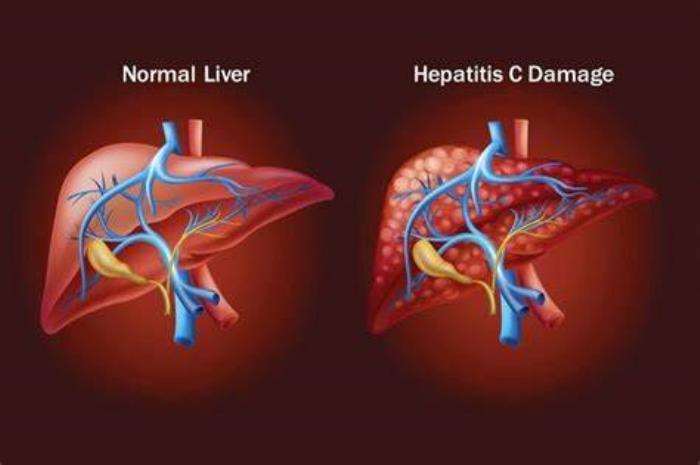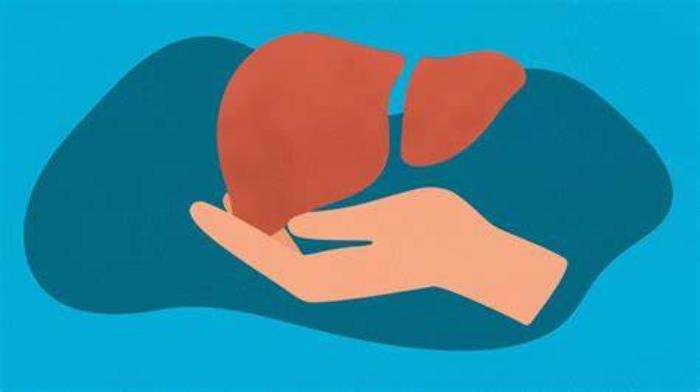Hepatitis C is a viral infection that primarily affects the liver, causing inflammation and potential damage to liver cells. If left untreated, the infection can lead to chronic hepatitis, scarring (cirrhosis), and eventually liver failure. Hepatitis C is a leading cause of liver transplantation due to its long-term impact on liver health.
Medical disclaimer: This content is for general awareness and does not replace a doctor’s consultation. For diagnosis or treatment decisions, consult a qualified specialist.
How Hepatitis C Leads to Liver Disease and Cirrhosis
Chronic hepatitis C infection leads to ongoing inflammation in the liver, which over time causes liver cells to be damaged and replaced by scar tissue (fibrosis). As the fibrosis progresses, it can eventually result in cirrhosis, where the liver’s function is severely compromised. Cirrhosis increases the risk of liver cancer and other complications.
The Link Between Hepatitis C and Liver Failure
Liver failure in hepatitis C patients occurs when the liver becomes unable to perform its essential functions, such as detoxifying the blood, producing vital proteins, and storing nutrients. Cirrhosis, a common consequence of chronic hepatitis C, can progressively damage the liver to the point where it can no longer sustain the body's needs, resulting in liver failure.

When Is Liver Transplantation Necessary for Hepatitis C Patients?
Liver transplantation is necessary for hepatitis C patients when cirrhosis or liver failure occurs, and the liver can no longer perform its functions. Common signs that a transplant may be required include complications such as ascites, variceal bleeding, hepatic encephalopathy, or when the liver is no longer responding to other treatments.
Benefits of Liver Transplantation for Hepatitis C-Related Liver Damage
Liver transplantation provides a chance for a long-term solution to hepatitis C-related liver damage. By replacing the damaged liver with a healthy one, patients can experience improved quality of life and survival. However, hepatitis C can recur in the transplanted liver, so careful monitoring and treatment are necessary after transplantation.
The Role of Antiviral Treatment in Hepatitis C Before Transplantation
Antiviral treatment for hepatitis C is an essential part of the pre-transplant process, as it can reduce the viral load and slow liver damage progression. In some cases, antiviral medications can eliminate the virus entirely, improving liver function and potentially reducing the need for transplantation. Successful treatment before a transplant can also improve transplant outcomes and reduce the risk of post-transplant complications.
Evaluating Hepatitis C Patients for Liver Transplant Eligibility
When evaluating hepatitis C patients for liver transplant eligibility, doctors assess the severity of liver damage, the patient’s overall health, and their ability to manage post-transplant care. The assessment typically includes liver function tests, imaging studies, and evaluations for other complications like kidney disease or heart issues. Patients must also be screened for any contraindications that could impact the success of the transplant.
Risks and Complications of Liver Transplantation in Hepatitis C Patients
Liver transplantation in hepatitis C patients carries specific risks, including recurrence of the infection in the transplanted liver. Hepatitis C may progress faster after transplantation, leading to liver damage, cirrhosis, or graft failure. Additionally, there is an increased risk of complications related to immunosuppressive therapy, such as kidney dysfunction, infections, and certain cancers. Post-transplant care requires careful monitoring to manage these risks.

Post-Transplant Care for Hepatitis C Patients
After a liver transplant, hepatitis C patients need lifelong monitoring to detect and manage recurrence of the virus. This includes regular blood tests, liver function tests, and imaging. Immunosuppressive therapy must be carefully managed to prevent graft rejection while minimizing the risk of hepatitis C recurrence and other infections. Additional care focuses on managing other comorbid conditions, such as kidney disease, diabetes, or cardiovascular issues.
Managing Hepatitis C Recurrence After Liver Transplantation
Hepatitis C recurrence in the transplanted liver is common, with some patients experiencing rapid progression of the disease. The virus can be managed with antiviral therapy, including direct-acting antivirals (DAAs), which are highly effective in treating hepatitis C. Post-transplant recurrence may also require adjustments in immunosuppressive medications to balance the prevention of rejection and control the virus.
The Impact of Immunosuppressive Therapy on Hepatitis C Recurrence
Immunosuppressive therapy, essential to prevent liver rejection, can have a negative impact on hepatitis C recurrence. By suppressing the immune system, these drugs allow the virus to replicate more rapidly in the transplanted liver. Thus, balancing immunosuppressive therapy is critical to reduce the risk of graft rejection while controlling hepatitis C recurrence. Doctors often tailor immunosuppressive regimens for each patient to minimize risks.
Advances in Hepatitis C Treatment and Their Effect on Transplant Outcomes
Recent advancements in hepatitis C treatment, particularly the introduction of direct-acting antivirals (DAAs), have greatly improved outcomes for liver transplant patients with hepatitis C. DAAs have demonstrated high cure rates and minimal side effects, even in post-transplant patients. These drugs can suppress the virus, potentially preventing rapid recurrence and improving long-term transplant success.
The Importance of Post-Transplant Monitoring for Hepatitis C Patients
Post-transplant monitoring for hepatitis C patients is crucial for detecting early signs of infection recurrence, liver dysfunction, or complications from immunosuppressive therapy. Regular follow-up visits involve blood tests, liver biopsies (if needed), and imaging to ensure the transplanted liver is functioning well and to address any potential issues before they become serious.
Hepatitis C and the Risk of Liver Rejection Post-Transplant
Hepatitis C can increase the risk of liver rejection after transplantation, especially when the virus is not well controlled. Rejection may manifest as elevated liver enzymes, jaundice, or liver dysfunction. It’s essential for patients with hepatitis C to maintain a comprehensive post-transplant care regimen to reduce the risk of rejection and ensure the transplanted liver remains healthy.
Can Hepatitis C Be Cured After Liver Transplantation?
While hepatitis C is not always permanently cured after liver transplantation, it can often be effectively treated with DAAs. These medications can suppress the virus to undetectable levels, reducing the likelihood of recurrence in the transplanted liver. However, in some cases, the virus may return, necessitating ongoing treatment. It’s important to note that a cure is not guaranteed for all patients, but antiviral therapy can significantly improve outcomes.
How Lifestyle Changes Can Support Hepatitis C Treatment and Liver Transplant Success
Lifestyle changes are crucial for hepatitis C patients undergoing liver transplantation. Maintaining a healthy diet, avoiding alcohol, staying physically active, and managing weight can help optimize liver function and overall health. Additionally, not smoking and avoiding other liver toxins are essential for preventing further liver damage. Good self-care also supports the effectiveness of antiviral treatments and reduces the risk of complications.
The Role of a Multidisciplinary Care Team in Treating Hepatitis C Patients
A multidisciplinary care team is vital for hepatitis C patients undergoing liver transplantation. This team may include hepatologists, transplant surgeons, infectious disease specialists, nutritionists, psychologists, and social workers. Coordinated care ensures that all aspects of the patient's physical, emotional, and psychological well-being are addressed before, during, and after transplantation, improving outcomes and quality of life.
Long-Term Prognosis for Hepatitis C Patients After Liver Transplant
The long-term prognosis for hepatitis C patients after liver transplant depends on factors such as the effectiveness of antiviral treatment, the degree of liver damage prior to transplant, and how well the patient follows their post-transplant care plan. With proper management of hepatitis C and immunosuppressive therapy, many patients experience good long-term outcomes. However, close monitoring for recurrence and complications is necessary.
Psychological and Social Support for Hepatitis C Liver Transplant Patients
The psychological and social aspects of recovery after a liver transplant are important for hepatitis C patients. Many patients face anxiety, depression, and stress during their treatment and recovery, particularly regarding the potential for hepatitis C recurrence and the impact of long-term medication use. Support groups, counseling, and mental health services can help patients navigate these challenges and improve their overall well-being.
Understanding Liver Cirrhosis and Its Link to Liver Transplant
Learn about liver cirrhosis and its link to liver transplant. This blog delves into how severe cirrhosis can necessitate a liver transplant and the factors influencing the timing and success of the procedure.
Future Innovations in Hepatitis C Treatment and Liver Transplantation
The future of hepatitis C treatment and liver transplantation looks promising with innovations in immunotherapy, personalized medicine, and improved antiviral drugs. Researchers are exploring ways to prevent recurrence more effectively and reduce the side effects of immunosuppressive drugs. New technologies, including genetic and molecular therapies, could offer even more tailored treatments for hepatitis C patients in the future.
Best Liver Transplant in India
The Best Liver Transplant in India provides life-saving treatment for patients with end-stage liver disease, offering advanced surgical techniques and comprehensive post-transplant care for successful recovery.
Best Liver Transplant Hospitals in India
The Best Liver Transplant Hospitals in India are equipped with cutting-edge technology and expert medical teams, ensuring top-notch care and optimal recovery for liver transplant patients.
Liver Transplant Cost in India
The Liver Transplant Cost in India offers an affordable solution for patients needing liver transplantation, ensuring access to world-class care at competitive pricing.
Best Liver Transplant Surgeons in India
The Best Liver Transplant Surgeons in India are highly skilled in performing liver transplants, providing precise surgeries and personalized care to ensure the best possible outcomes for their patients.
FAQ Section
1. How does Hepatitis C cause liver damage?
Hepatitis C causes liver damage by attacking liver cells, leading to inflammation and scarring. Over time, this can progress to cirrhosis, liver failure, or liver cancer.
2. When is a liver transplant considered for a Hepatitis C patient?
Liver transplantation is considered for hepatitis C patients when they reach end-stage liver disease, with complications like cirrhosis, liver failure, or liver cancer that cannot be managed with other treatments.
3. What are the benefits of liver transplantation for Hepatitis C patients?
The main benefit of liver transplantation is the restoration of normal liver function, which can alleviate symptoms of liver failure and improve the patient’s overall quality of life.
4. Can Hepatitis C be cured after a liver transplant?
Hepatitis C can often be treated effectively after liver transplant with antiviral medications, particularly direct-acting antivirals. While it may not be permanently cured in all cases, the virus can be suppressed to undetectable levels.
5. How is Hepatitis C treated before a liver transplant?
Before a liver transplant, hepatitis C is often treated with antiviral medications to control the virus and reduce liver damage. In some cases, patients may undergo treatment to achieve an undetectable viral load before surgery.